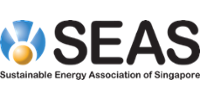Event Details
Registration is still available.
Course Overview
The launch of the Singapore Green Plan 2030 by the Singapore government highlights the importance of galvanising a whole-of-nation movement to advance Singapore's national agenda on sustainable development. Super Low Energy buildings are crucial to attaining Singapore's green building and net zero carbon goals.
This compact training programme shares fundamental concepts, principles, and strategies on how to create Super Low Energy buildings – buildings which are energy and resource efficient and environmentally responsible as well.
Course Objectives
This energy management training programme is designed to take generalists and specialists on an invigorating energy efficiency journey. The training starts by building a foundational understanding of energy management, energy use and HVAC principles. It then delves into more technical matters on energy consuming systems and the strategies for energy savings. Case studies will be discussed throughout the session to enhance learning.
Whether you are a seasoned professional looking for a more well-rounded understanding of energy management, an M&E design engineer tasked with designing efficient building M&E systems or a building facility manager looking to acquire a more technical understanding of energy efficiency, this course will prove a valuable training experience.
Programme Outline
- Super Low Energy Buildings & Singapore Green Plan 2030
- Key Strategies to Achieve Super Low Energy Performance
- Six Principles for Effective Energy Management
*Knowing how, when and where energy is used
*Focus on efficient operation
*Good building management
*Good maintenance practices
*Maintenance and energy management
*Good system design
- Understanding Energy Usage and Curtailment
*Energy usage pattern
*Energy conservation, load management and demand response
*Plug load management
- Good System Design
*Linear approach versus whole systems approach
*Designing HVAC systems for long-term high-impact performance
- Fundamentals of HVAC Systems
*Collection, transfer, and rejection of heat
*Understanding basic cooling systems
*Efficient cooling technologies and strategies: Chilled Beams, Radiant Cooling, Dedicated Outdoor Air Systems (DOAS), Displacement Ventilation, Heat Recovery Systems
- Optimizing Lighting Energy Performance
- Leveraging Smart Automation Technologies
*Digitisation, IoT (Internet of Things), Data Analytics, FDD (Fault Detection and Diagnostic Systems),
Machine Learning, AI, Predictive Algorithms and ASO (Automated System Optimisation).
Certificate
All participants will receive a Certificate of Attendance from SEAS upon completion.
SCEM Participants will be awarded with 7 PDU Points



